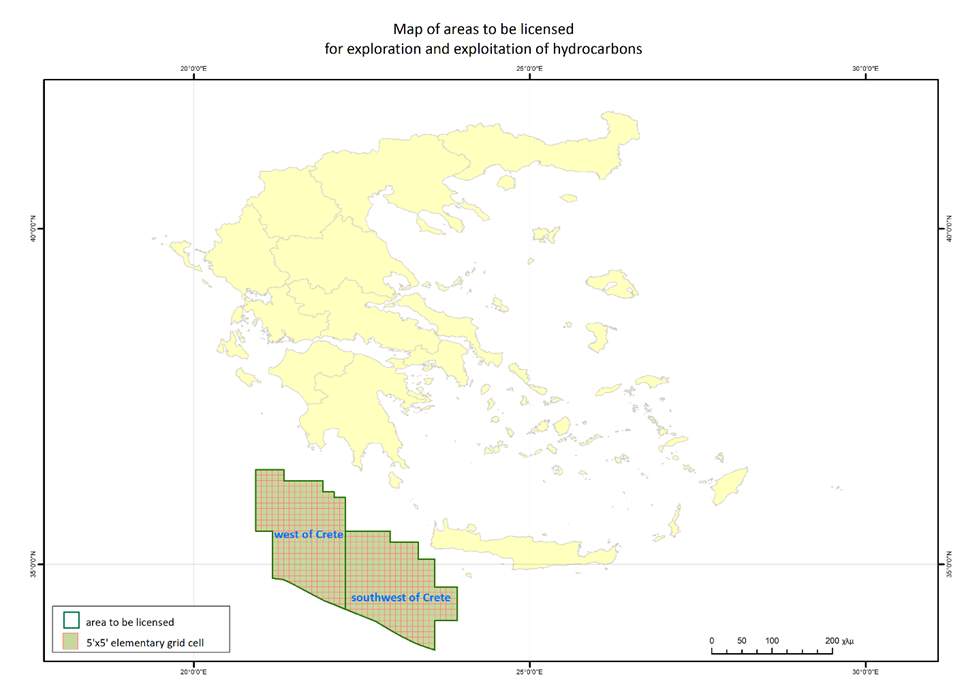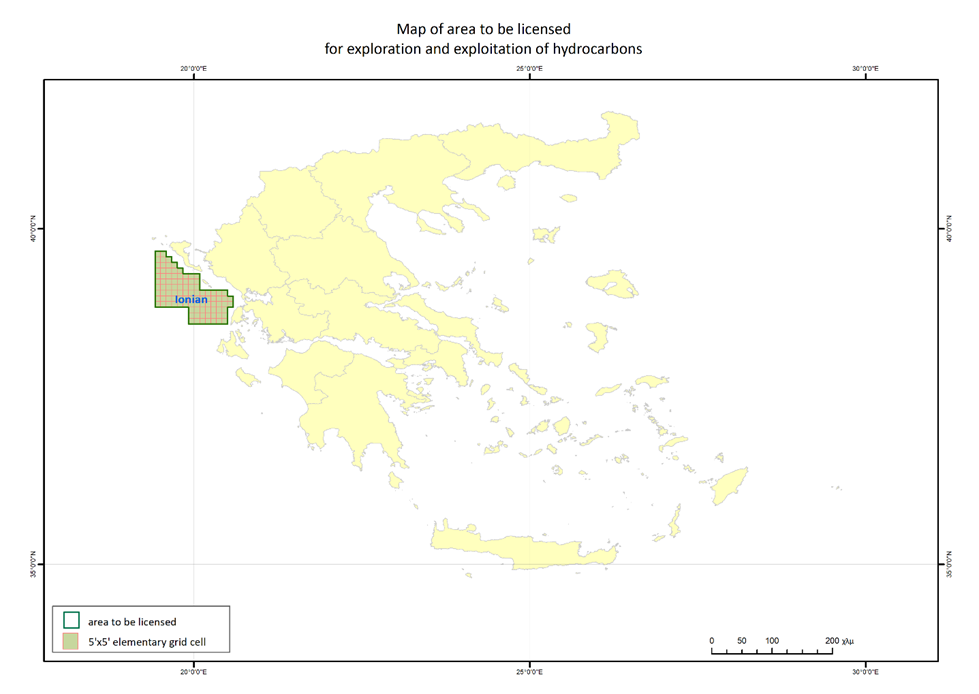[Premium] Greece’s Offshore Tenders Draw More Interest
Greece’s latest offshore hydrocarbon tender rounds opened December 2 and will close February 28. They cover two offshore areas: southwest and west of Crete (Figure 1), and the Ionian (Figure 2).
Figure 1: Offshore licensing areas west and south-west of Crete

Source: HHRM
Figure 2: Offshore licensing areas in the Ionian Sea
Source: HHRM
The tenders were published following an expression of interest by the consortium of Total-ExxonMobil-Hellenic Petroleum (Helpe) in the case of the blocks southwest and west of Crete; and by Energean Oil and Gas in the case of the Ionian Sea.
The tenders invited offers to Hellenic Hydrocarbons Resources Management (HHRM) within 90 days.
In an interview with Reuters January 17 – the quotes have since been confirmed by NGW – HHRM CEO Yiannis Bassias said interest had been strong, adding: “HHRM is happy because the companies involved in exploration in the southeast Mediterranean have shown strong interest or have visited data rooms.”
These companies include Eni, which, following its success with Zohr and other offshore gas-fields in Egypt, appears to be interested in two offshore blocks, one southwest, the other west of Crete and has already bought data packages. Eni, in partnership with Total, is drilling in block 6 in Cyprus’ exclusive economic zone, to be followed by drilling in block 3. Its interest extends to the wider east Mediterranean region. Last month it was awarded two exploration blocks offshore Lebanon in a consortium with Total and Novatek.
Interest also appears to have been expressed by Noble Energy and Israel’s Delek, two other big players in the eastern Mediterranean.
In 2013, a tender for blocks offshore Crete received no bids, but subsequent discovery of the giant Zohr gas-field offshore Egypt increased interest in the region. The tendered areas have geological similarities to Zohr – analysis of seismic data indicate potential reservoirs in carbonate formations.
The prospective basins in the Ionian and south of Crete regions consist of carbonate platforms and transition zones and play types include both stratigraphic and structural carbonate reefs and are largely unexplored. According to Bassias, the Ionian contains a vast amount of carbonate reefs, offering a compacted, highly folded carbonate environment with potentially high reserves. Greece hopes that there will be discoveries mirroring some of the more recent successes.
Exploration and drilling costs in the tendered areas are epected to be high owing to water depth of between 1,200 metres and 2,500 metres, but also reservoir depth – for Zohr, the total depth was close to 4,200 metres. This will tend to limit participation to larger oil and gas companies that can afford the costs and exploration risks, given that these are frontier areas with little prior exploration data and no wells drilled so far. Bassias describes the region as high-risk and high-reward.
As a result, it is understood that during the evaluation of tenders, more emphasis will be placed on the technical part as well as proposed investment budgets, rather than the signing bonus.
Western Greece offers a geopolitical safe-haven for offshore operations compared with other regions in the Mediterranean. The proximity of the offered exploration blocks to mainland Europe also makes export costs low and potential markets more easily accessible.
Greece’s hydrocarbon exploration and production industry has entered a new rather promising period, both in relation to the market environment and oil prices, but also as a result of the work done at the institutional level and at the level of preparation by HHRM.
The company is ready to evaluate tender submissions and start negotiations soon after the closing date. The timetable envisages that preferred bidders will be announced by May. The formal procedure requires that they must then be formally approved by the ministry of energy and the concessions ratified by parliament before the award process can be completed.
Greece’s energy minister, Giorgos Stathakis, emphasized recently the importance of hydrocarbon discoveries to the recovery of the Greek economy. He also said that the state will ensure that national and European environmental legislation is enforced, to safeguard the environment, which is an important resource for tourism and thus for the national economy. Bassias also stressed that Greece’s tourism, wildlife, and fauna require a sensitive approach to exploiting potential reserves.



